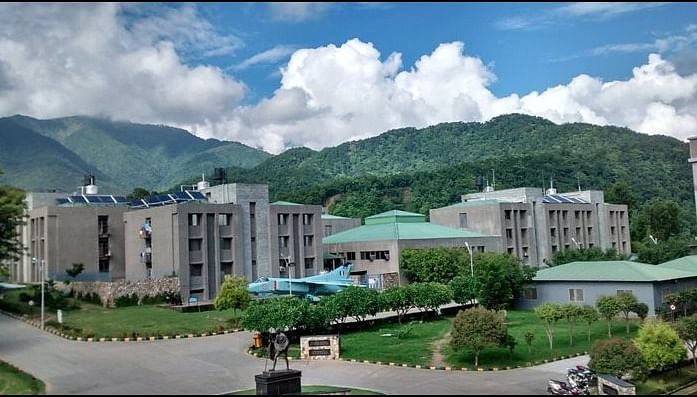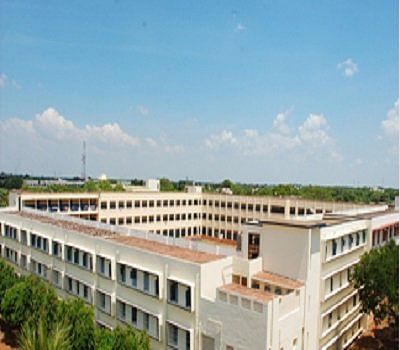B.Sc Nutrition: Course Details, Eligibility, Admission, Fees

BSc Nutrition is a three year undergraduate program that aims to provide comprehensive knowledge of food service management, dietetics, and human physiology, among other topics that are deeply embedded in the BSc Nutrition curriculum. BSc Nutrition jobs after graduation include nutritionist, food analyst, lecturer, etc.
Table of Contents
- About BSc Nutrition
- BSc Nutrition Eligibility
- Who Should Pursue BSc Nutrition Course?
- How To Get Admission for a BSc Nutrition Course?
- Types of BSc Nutrition Courses
- Popular Entrance Exams for BSc Nutrition
- Top 10 BSc Nutrition Colleges in India
- Fee Structure for BSc Nutrition
- Syllabus and Subjects for BSc Nutrition
- Why Choose BSc Nutrition Course?
- BSc Nutrition Course Comparison
- Preparation Tips for BSc Nutrition Course
- Scope of BSc Nutrition for Higher Education
- Salary of a BSc Nutrition Graduate
- Career Options After BSc Nutrition Graduation
- Skills That Make You the Best BSc Nutrition Graduate
B.Sc Nutrition Course Details
| Degree | Bachelors |
| Full Form | Bachelor of Science in Nutrition |
| Duration | 3 Years |
| Age | There is no upper age limit. |
| Entrance Exam | JMI EE, JNU EE, KCET, KEAM |
| Subjects Required | 10+2 with Bioscience |
| Minimum Percentage | 50% |
| Average Fees | ₹50K - 3 LPA |
| Average Salary | INR 2- 8 LPA |
| Employment Roles | Food Processing Specialist, Nutritionist, Biocare Specialist, etc. |
About BSc Nutrition
BSc Nutrition course duration is three years divided into six semesters. The BSc Nutrition curriculum focuses on providing students with both academic and practical knowledge of current trends and practices in the domain. BSc Nutrition job scope is extensive ranging from the medical representative and food processing specialist to a researcher in both the public and private sectors.
BSc Nutrition Eligibility
BSc Nutrition eligibility includes completing a 10+2 minimum aggregate of 50% or above, from an accredited board. Students must pass the common entrance tests if required in addition to eligibility for BSc Nutrition. There is no upper age limit for enrollment in this course.
Who Should Pursue BSc Nutrition Course?
Students who desire to enter a new area that offers a variety of roles in science and health services can consider a BSc Nutrition course. Students interested in food microbiology, food science, dietetics, etc. can enrol in the course.
When To Do a BSc Nutrition Course?
If a student wants to pursue a career in a science-related field, he or she should complete their 10+2 grade with a minimum of 50%–55% or above marks.
| BSc Nutrition Entrance Exams | Top BSc Nutrition Colleges in India |
How To Get Admission for a BSc Nutrition Course?
Admission to the BSc Nutrition course can be done through both online and offline methods. BSc Nutrition admission can also be started by directly visiting the college's admissions office. The following topics provide answers to the admissions procedure in general:
How to Apply?
Students must go to the official websites of the colleges they intend to attend to begin the application process. By visiting the college admission office and submitting their application and any relevant papers, students can enrol offline.
Selection Process
The selection process for BSc Nutrition admission programs can be done either via merit-based or entrance-based methods. Based on their academic performance, having completed their 12th grade with at least 50% marks in a bioscience background.
To get selected, applicants must pass an entrance exam like the JNU EE, JMI EE, KCET, etc. Applicants are then qualified for the subsequent round of admission.
Read More on B.Sc Admission
| Top Trending B.Sc Courses | |
| BSc Nursing | B.Sc Psychology |
| BSc Agriculture | B.Sc Forensic Science |
| BSc Computer Science | B.Sc IT |
| BSc Biotechnology | B.Sc Microbiology |
Check other important B.Sc Courses
Types of BSc Nutrition Courses
The course has full-time, part-time, and distance options available to aspirants for the course. The following BSc Nutrition course details are provided below:
Full-Time BSc Nutrition
A full-time BSc Nutrition course has the advantage of allowing students to speed up their learning process and considerably increase their exposure and experience.
Part-Time BSc Nutrition
For professionals who are currently employed and unable to take time off for full-time education, the part-time BSc Nutrition course could be highly beneficial.
Distance BSc Nutrition
For those who cannot attend regular sessions, a distance BSc Nutrition is one of the preferred alternatives. BSc Nutrition courses in India through distance learning is offered by a number of colleges and universities, such as BRAOU.
Popular Entrance Exams for BSc Nutrition
For admission to the BSc Nutrition course, several institutes in India have entrance exams. Some of the most common entrance exams for the BSc Nutrition course are listed below:
A Quick Glance at the BSc Nutrition Entrance Exams
The admission procedure for a BSc Nutrition course can be conducted on the basis of entrance exams or merit. The following key points are listed to provide a quick overview of the structure of entrance exams:
- The question paper will contain three or four sections depending on the exam or university.
- The exam will be conducted either offline or online with OMR sheets for a duration of 3 hours.
- The syllabus, examination process, and question format may change according to the required demand as per the university.
| JNUEE Exam Pattern | KCET Exam Pattern |
| KEAM Exam Pattern | MDUCEE Exam Pattern |
Top 10 BSc Nutrition Colleges in India
BSc Nutrition in India is a demanding and day-by-day emerging course. The following is a list of the top 10 best BSc Nutrition colleges in India, along with their average fees:
|
S.No |
Name of the College |
Average Fees (INR) |
|
1 |
11,000 PA |
|
|
2 |
50,000 PA |
|
|
3 |
41,000 PA |
|
|
4 |
2.7 LPA |
|
|
5 |
60,000 PA |
|
|
6 |
37,000 PA |
|
|
7 |
2.850 PA |
|
|
8 |
50,000 PA |
|
|
9 |
85,000 PA |
|
|
10 |
60,000 PA |
Top BSc Nutrition Colleges in Hyderabad
The following are the BSc Nutrition colleges in Hyderabad:
|
S.No |
Institution |
|
1 |
|
|
2 |
|
|
3 |
New Science College |
|
4 |
Saanvi Degree College for Women |
Top BSc Nutrition Colleges in Chennai
Below is the list of colleges that offer BSc Nutrition courses in Chennai:
|
S.No |
Institution |
|
1 |
|
|
2 |
|
|
3 |
|
|
4 |
Top BSc Nutrition Colleges in Coimbatore
The following are the BSc nutrition colleges in Coimbatore:
|
S.No |
Institution |
|
1 |
|
|
2 |
|
|
3 |
|
|
4 |
Top BSc Nutrition Colleges in Madurai
The following are the BSc Nutrition colleges in Madurai:
|
S.No |
Institution |
|
1 |
|
|
2 |
Home Science College and Research Institute |
|
3 |
E.M.Gopalakrishna Kone Yadava Womens College |
Top BSc Nutrition Colleges in Kolkata
The following are the BSc nutrition colleges in Kolkata:
|
S.No |
Institution |
|
1 |
|
|
2 |
|
|
3 |
|
|
4 |
Top BSc Nutrition Private Colleges
The number of private universities offering a BSc Nutrition course has significantly increased in India. The following is a list of private colleges that offer a BSc Nutrition course:
|
S.No |
Institution |
|
1 |
|
|
2 |
|
|
3 |
|
|
4 |
|
|
5 |
Top BSc Nutrition Government Colleges
There are various government colleges that offer a BSc Nutrition course in India. The colleges are listed below:
|
S.No |
Institution |
|
1 |
|
|
2 |
|
|
3 |
|
|
4 |
|
|
5 |
Fee Structure for BSc Nutrition
The fee for the BSc Nutrition course is variable and depends on a number of criteria. The BSc Nutrition fees take all of these factors into account: location, faculty, demand, infrastructure, and the resources that students may access. The average BSc Nutrition course fee in India is around INR 50,000—3 LPA.
|
Sl.No. |
Name of the College |
Average Fee Structure (INR) |
|
1. |
Ethiraj College for Women, Chennai |
11,000 PA |
|
2. |
Women Christian College, Chennai |
50,000 PA |
|
3. |
Parul University, Vadodara |
41,000 PA |
|
4. |
Woxsen University, Hyderabad |
2.7 LPA |
|
5. |
Integral University, Lucknow |
60,000 PA |
Syllabus and Subjects for BSc Nutrition
The BSc Nutrition course has a three-year duration and is divided into six semesters. The BSc Nutrition curriculum is designed to promote student learning and professional success. The following topics will be covered in this course:
- Introduction to Food and Nutrition
- Human Physiology
- Food Quality and Check Methods
- Food Marketing Techniques
- Microbiology
Read More: BSc Nutrition Syllabus and Subjects
Why Choose BSc Nutrition Course?
It's crucial to comprehend a few factors associated with any course of study before choosing it, such as “What is a BSc Nutrition course?" What is the future scope of a BSc Nutrition? Etc. The brief responses offered below can be used by students to comprehend the course.
What is BSc Nutrition Course All About?
BSc Nutrition is a three-year undergraduate program, that is divided into six semesters. The course offers knowledge about various concepts of balanced diet components, eating habits, lifestyle management, food processing, etc.
What Does a BSc Nutrition Graduate Do?
With the BSc Nutrition course, there are several professions where building a successful career offers good opportunities. Graduates of the BSc Nutrition course are employed in a wide range of areas, industries, etc., where they must conceptually tie every aspect of their subject knowledge to their practical experience.
Food Processing Consultant: They carry out and put into practice in-services in food safety and sanitation, such as those on hygiene, preparing quality food, estimating food requirements, etc.
Reasons Why a BSc Nutrition Course Can Fetch You a Rewarding Career?
The BSc Nutrition course offers a variety of job opportunities. Students can evaluate the inherent value of the programme because a BSc Nutrition course offers a wide range of professional prospects, from a food analyst, and nutritionist to a food researcher. A BSc Nutrition's scope is associated with promising opportunities and increasing potential.
- Demand: Students can select from a range of opportunities at renowned domestic and international hospitals/organizations through the BSc Nutrition course.
- Career Growth: BSc Nutrition graduates can choose from a variety of positions, such as Biocare nutrition specialists, lecturers, nutrition advisors, etc. After gaining domain expertise, candidates can advance in their careers.
Read More: BSc Nutrition Jobs & Scope
BSc Nutrition Course Comparison
The full form is Bachelor of Science in Nutrition, and it is typically geared toward students who are interested in the technical aspects of gaining knowledge and information about the insights on nutrition and food microbiology as well as a comprehension of its components. Below is a comparison of the BSc Nutrition course details with other courses:
BSc Nutrition vs BSc Food Science
The table below showcases the differences between BSc Nutrition and BSc Food Science:
|
Course |
BSc Nutrition |
BSc Food Science |
|
Full Form |
Bachelor of Science in Nutrition |
Bachelor of Science in Food Sciences |
|
Stream |
Science |
Science |
|
Duration |
3 years |
3 years |
|
Eligibility |
10+2 with a science stream |
10+2 with a science stream |
|
Entrance Exams |
KCET, KEAM, NEST, JMI EE, etc. |
CFTRI, IIFPT, BHU-UET, etc. |
|
Top Colleges |
Christ University, Gargi College, All India Institute of Medical Sciences |
Andra University, Dr BMN College of Home Science, Banasthali Vidyapeeth |
|
Fees |
INR 50,000- 3 LPA |
INR 10,000- 2 LPA |
Preparation Tips for BSc Nutrition Course
A number of important factors should be taken into account by students before deciding whether to pursue a BSc Nutrition course. By putting these crucial study tips into practice, students can excel in their studies, pass the course, and ace the exams:
- Syllabus Completion: The course syllabus must be well understood by the learner. This crucial first step marks the start of the preparation procedure.
- Exam Format: Understand the format of the exam and the kinds of questions that are typically asked. The likelihood of the kids receiving multiple-choice questions is relatively high.
- Review of Key Topics: Students should pay greater attention to these subjects because they are tested more frequently.
- Practice: Utilize sample exams and test questions from prior years to prepare for the questions.
Scope of BSc Nutrition for Higher Education
The scope of BSc Nutrition is vast, which gives candidates a chance to pursue higher studies after obtaining the degree. The following are some of the best higher education programs in the area of nutrition:
Salary of a BSc Nutrition Graduate
Depending on the role that graduates work in, the salary can vary. There are a number of other factors that may affect BSc Nutrition salary in India, in addition to experience, location, and the industry they work in.
Candidates may advance to higher positions and earn greater salary slabs as they get more experience and practical exposure. The average BSc Nutrition salary for graduates is around INR 2–8 LPA. [Source: PayScale].
Read More: BSc Nutrition Salary
Career Options After BSc Nutrition Graduation
For a BSc Nutrition graduate, there are many positions available in both the private and public sectors. For graduates of the BSc Nutrition, the following job profiles offer competitive pay scales:
- Medical Representative
- Food Researcher
- Food Processing Consultant
- Nutritionist
- Lecturer
- Food Analyst
Skills That Make You the Best BSc Nutrition Graduate
To excel as a BSc Nutrition graduate, many skills are required that will help to increase the individual learning curve and boost a practical approach to problem-solving that must be inculcated in the continuous learning environment.
- Problem-Solving skills
- Communication skills
- Interpersonal skills
- Leadership skills






















